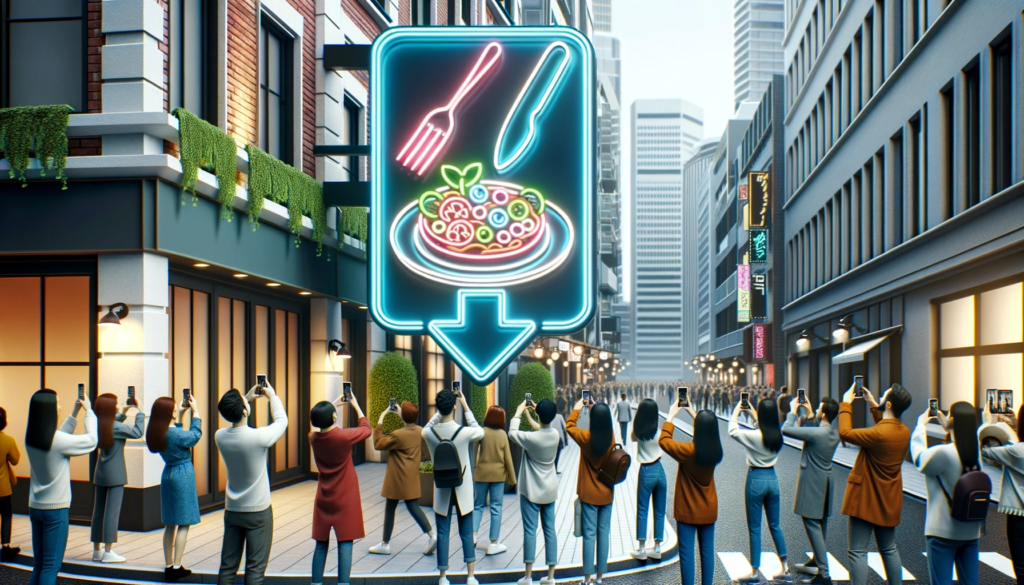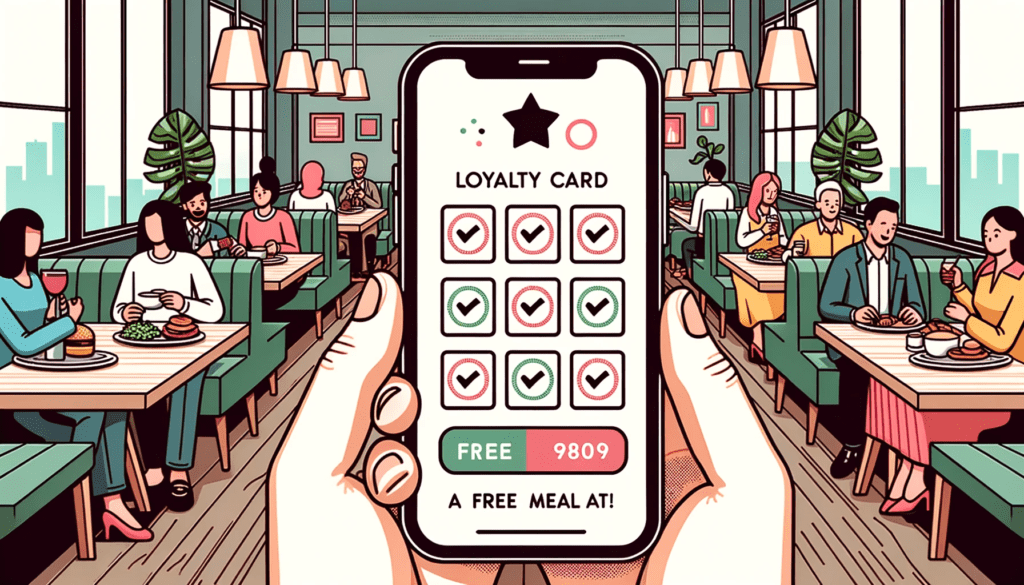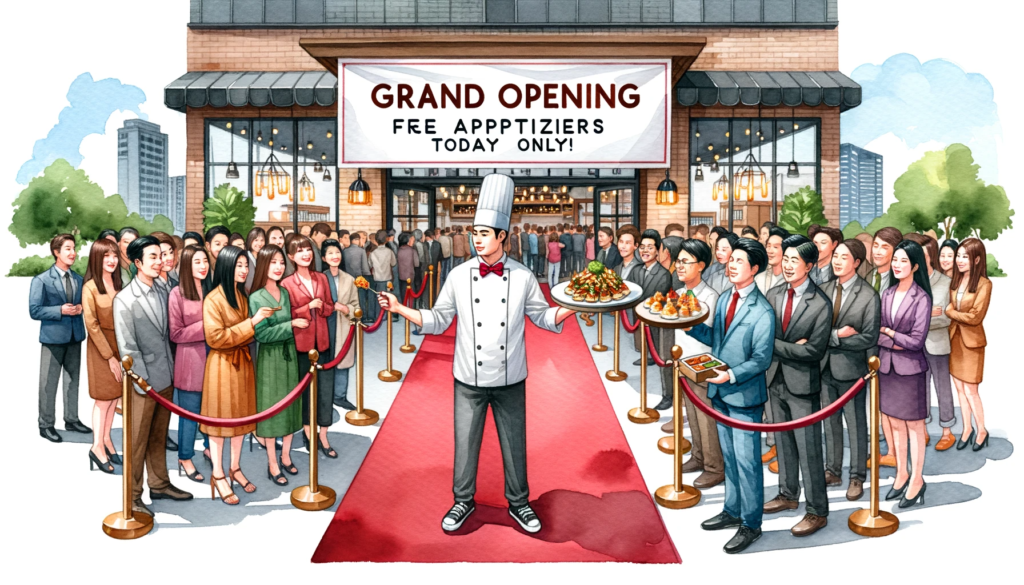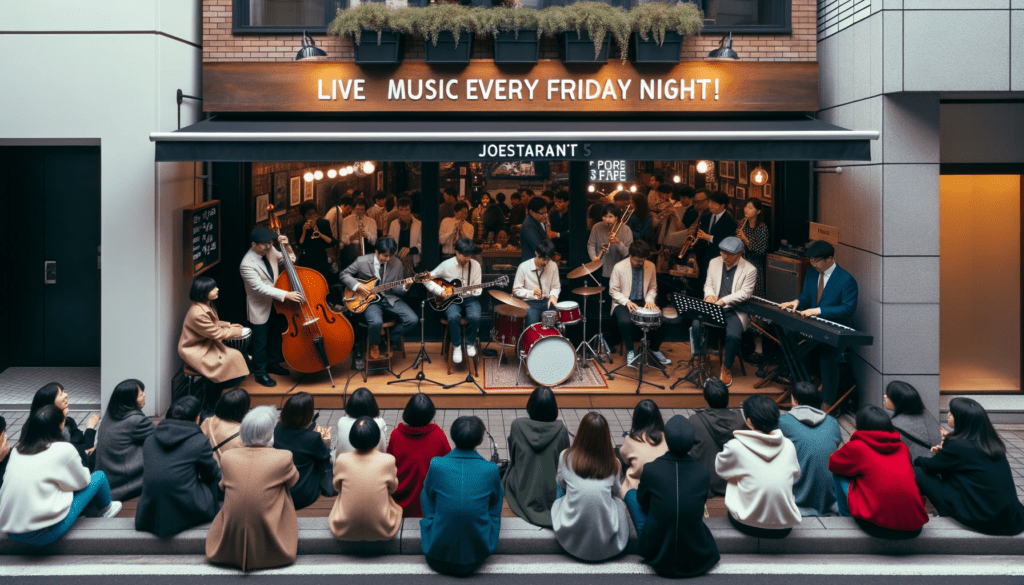Marketing is crucial in attracting customers, increasing visibility, and driving revenue for restaurants and bars. It helps create brand awareness, engage with the target audience, and differentiate from competitors. Effective marketing strategies can help establishments thrive in a competitive industry. With the right marketing approach, restaurants and bars can attract new customers, retain loyal patrons, and stand out in a saturated market.

Let's consider the following example to understand the importance of marketing for restaurants and bars. Imagine a newly opened restaurant in a bustling neighbourhood. With marketing efforts, it may gain visibility and attract customers. However, the restaurant can generate buzz and draw in a steady stream of customers by implementing effective marketing strategies such as social media promotion, local partnerships, and creative events. Marketing is the key to creating a strong presence in the industry and driving revenue.
Understanding Your Audience
To develop successful marketing strategies for restaurants and bars, it is crucial to understand the target audience. By conducting audience research and analysis, establishments can gain insights into their potential customers' demographics, preferences, and behaviours. For example, a bar located near a university campus may have a target audience of college students and young professionals. Understanding this demographic can help the bar tailor its marketing messages and offerings to appeal to this specific group.
In addition to demographic information, establishments can further utilize customer personas to understand their target audience. Customer personas are detailed profiles of ideal customers based on their characteristics, needs, and motivations. For instance, a restaurant that specializes in vegan cuisine may create a customer persona for health-conscious individuals who are environmentally conscious and seek plant-based dining options. By understanding their target audience through customer personas, restaurants and bars can better tailor their marketing strategies to meet their customers' specific needs and desires.
Online Marketing Strategies
In today's digital age, online marketing has become increasingly important for restaurants and bars. With the widespread use of the internet and social media platforms, establishments can reach a wider audience and increase their visibility. Here are some effective online marketing strategies to consider:

- Developing a compelling website: A visually appealing and user-friendly website is essential for showcasing a restaurant or bar's unique offerings, menu, and contact information. It should be optimized for mobile devices, as many customers search for dining options on their smartphones. Additionally, incorporating online reservation options can make it convenient for customers to book a table. For example, a restaurant can showcase mouth-watering food images, provide detailed descriptions of their dishes, and offer an easy-to-use online reservation system on their website.
Best complete system wed have found for bars and restaurants with website building, email marketing, complete land page set ups is groove.
- Utilizing social media platforms effectively: Social media platforms such as Facebook, Instagram, and Twitter provide excellent opportunities for restaurants and bars to engage with their target audience. By establishing a presence on these platforms, establishments can regularly post engaging content, interact with followers, and leverage social media advertising to reach a wider audience. For instance, a bar can share enticing images of their signature cocktails, post about upcoming events or promotions, and respond to customer comments and inquiries on social media.
- Leveraging online reviews and reputation management: Online reviews play a significant role in customers' decision-making. Encouraging customers to leave reviews on platforms such as Google My Business, Yelp, and TripAdvisor can greatly influence potential customers' perception of a restaurant or bar. Responding promptly and professionally to positive and negative reviews is essential to demonstrate excellent customer service and build trust with potential customers. For example, a restaurant can encourage satisfied customers to leave reviews by offering incentives such as a discount on their next visit or a free dessert.
- Implementing search engine optimization (SEO) techniques: Optimizing a restaurant or bar's website and online content with relevant keywords, meta tags, and high-quality backlinks can improve its visibility in search engine results. By appearing higher in search rankings, establishments have a better chance of attracting organic traffic from potential customers actively searching for dining options. For instance, a restaurant can incorporate keywords related to its cuisine, location, and unique offerings throughout its website to improve its SEO and increase its chances of ranking higher in search results.
- The role of targeted advertising and local search strategies: Paid advertising platforms such as Google Ads and Facebook Ads offer the opportunity to target specific demographics and geographic locations. By utilizing these platforms, restaurants and bars can reach their ideal customers more effectively. It is important to optimize online presence for local search results by including accurate business information, utilizing local SEO tactics, and registering with platforms such as Google My Business. For example, a bar in a popular tourist area can target tourists searching for nightlife options in that specific location through paid advertising platforms.
- Harnessing the power of online food delivery apps: Partnering with popular food delivery platforms such as Uber Eats, Grubhub, or DoorDash can expand the reach of restaurants and bars. These platforms offer convenient online ordering and delivery services, attracting customers who prefer to dine at home or in their offices. For instance, a restaurant can partner with food delivery apps to offer its menu items for delivery, providing customers with the convenience of enjoying their favourite meals without leaving their homes.
Offline Marketing Strategies
While online marketing is crucial in today's digital world, offline marketing strategies still significantly attract customers to restaurants and bars. Here are some effective offline marketing strategies to consider:
- Establishing local partnerships and collaborations: Forming alliances with complementary local businesses, such as nearby hotels, theatres, or event venues, can be mutually beneficial. By cross-promoting each other's offerings and hosting joint events or promotions, restaurants and bars can attract new customers who may be unaware of their presence. For example, a restaurant can collaborate with a nearby theatre to offer a special pre-show dinner package, enticing theatre-goers with a convenient dining option.
- Hosting events and promotions: Organizing themed nights, happy hours, live music performances, or special events can create excitement and attract customers during slower periods. By offering exclusive discounts or incentives, establishments can encourage attendance and generate buzz in the local community. For instance, a bar can host a trivia night every Wednesday, offering discounted drinks to participants and creating a fun and engaging atmosphere that encourages repeat visits.
- Creating a unique brand identity and enhancing ambience: The ambience and overall experience at a restaurant or bar can greatly impact customer satisfaction and loyalty. Paying attention to interior design, music selection, and staff appearance can help create a distinct atmosphere that aligns with the target audience's preferences. Adding unique touches and memorable details can make the establishment stand out from competitors. For example, a restaurant specializing in a specific cuisine can design its interior to reflect the cultural influences of that cuisine, creating an immersive dining experience for customers.
- Participating in local communities and engaging with customers: Getting involved in community events, sponsoring local sports teams or charities, and supporting neighbourhood initiatives can help restaurants and bars build a strong presence in the local community. Engaging with customers through social media, promptly responding to comments and messages, and showing genuine interest in their feedback can foster a sense of connection and loyalty. For instance, a restaurant can sponsor and promote a local charity event on social media, encouraging customers to get involved and support the cause.
- Leveraging data to make informed marketing decisions: In today's data-driven world, utilizing analytics tools to track customer behaviour, measure the impact of marketing campaigns, and make data-backed decisions is essential. By analyzing the collected data, establishments can identify trends, preferences, and areas of opportunity. This allows them to make informed decisions, refine marketing tactics, and allocate resources effectively. For example, a bar can use data analytics to determine the most popular drinks among its customers and create targeted promotions or events around those drinks to maximize sales. Implementing creative offline advertising techniques for bars: While digital advertising is prevalent, traditional advertising methods such as billboards, flyers, radio spots, or local print publications can still effectively target potential customers within a specific local area. For instance, a bar can place eye-catching billboards near popular entertainment venues to capture the attention of individuals looking for after-show drinks.
Importance of Customer Experience
The customer experience is a critical factor in the success of any restaurant or bar. Providing exceptional customer service, personalized interactions, and memorable experiences can create positive word-of-mouth marketing and encourage repeat business. The customer experience encompasses every touchpoint a customer has with the establishment, from when they enter to when they leave. By prioritizing customer experience, restaurants and bars can create loyal customers who become advocates for their brand.

Word-of-mouth marketing, which is heavily influenced by customer experience, can significantly impact the success of a restaurant or bar. When customers have a positive experience at an establishment, they are more likely to share their experience with others, either through in-person recommendations or online reviews. Positive reviews and recommendations can greatly influence potential customers' decision-making when choosing a place to dine or drink.
To ensure exceptional customer experiences, establishments can implement various strategies. For example, training staff to provide attentive and friendly service, personalizing customer interactions, and creating a welcoming atmosphere can leave a lasting impression on customers. Offering unique experiences such as chef's table dining or mixology classes can also set a restaurant or bar apart from its competitors, providing memorable experiences that keep customers returning for more.
In addition to in-person experiences, the online ordering and delivery experience is also crucial in today's digital landscape. Streamlining online ordering, offering contactless delivery options, and ensuring accurate and timely delivery can enhance the customer experience. For instance, a restaurant can partner with a reliable food delivery app and optimize its online ordering system to provide a seamless and convenient experience for customers who prefer to dine at home.
Tracking and Analyzing Marketing Efforts
Tracking and analyzing the success of marketing efforts is essential for restaurants and bars to understand what strategies are effective and where improvements can be made. By measuring marketing activities' return on investment (ROI), establishments can identify successful strategies and areas for improvement. This data-driven approach allows them to optimize their marketing efforts and allocate resources effectively.

To track and analyze marketing campaigns, establishments can utilize various analytics tools. These tools provide insights into website traffic, social media engagement, conversions, and other key performance indicators (KPIs). By monitoring these metrics, establishments can better understand the impact of their marketing campaigns and make data-backed decisions to refine their strategies.
In addition to quantitative data, establishments should also pay attention to customer feedback and online reviews. Monitoring and responding to positive and negative reviews can demonstrate attentiveness and improve customer satisfaction. Customer feedback can also provide valuable insights into areas that may require improvement or adjustment in marketing strategies.
By continuously tracking and analyzing marketing efforts, establishments can stay agile and make necessary adjustments to optimize their strategies. This data-driven approach ensures that resources are allocated effectively and that marketing efforts align with the preferences and needs of the target audience.
Restaurant Marketing Ideas
While there are various marketing strategies that restaurants can implement, exploring creative ideas to attract more customers is always beneficial. Here are some restaurant marketing ideas:
- Offer limited-time promotions or discounts: Creating a sense of urgency with limited-time offers or discounts can entice customers to try a restaurant. For example, a restaurant can offer a special prix-fixe menu for a week, encouraging customers to make a reservation before the promotion expires.
- Create signature dishes or drinks: Developing unique menu items exclusive to the restaurant can create a sense of excitement and curiosity among customers. Highlighting these signature dishes or drinks in marketing materials and social media posts can attract customers looking for something special and different.
- Host themed dining events or collaborations: Organizing themed dining events or collaborating with local influencers can generate buzz and attract new customers. For instance, a restaurant can host a wine-pairing dinner with a local winery or invite a popular food blogger to create a special menu for a night.
- Utilize email marketing to engage with customers: Building an email list and sending personalized promotions, exclusive offers, and updates can keep customers engaged and encourage repeat visits. For example, a restaurant can send a monthly newsletter about upcoming events, new menu items, and exclusive discounts for subscribers.
- Implement a loyalty program: Rewarding loyal customers with exclusive perks, discounts, or freebies can foster customer loyalty and encourage repeat visits. Collecting and analyzing customer data can also help tailor marketing messages and offers to individual preferences.
- Showcase the quality and provenance of ingredients: Emphasizing the use of locally sourced, organic, or sustainable ingredients can appeal to customers who value quality and sustainability. Highlighting the unique flavours and stories behind menu items can create a connection with customers who appreciate the restaurant's commitment to quality.
- Offer online delivery through food delivery apps: Partnering with food delivery apps such as Uber Eats, Grubhub, or DoorDash can expand a restaurant's reach and cater to customers who prefer the convenience of ordering from home. Ensuring a seamless online ordering and delivery experience is crucial to satisfying customers who choose this dining option.
- Engage customers with live social media stories: Using features such as Instagram or Facebook Stories can provide a behind-the-scenes glimpse into the restaurant's daily operations and create a sense of connection with customers. Sharing live updates, special offers, or even short cooking tutorials can engage customers and keep them interested in the restaurant.
By implementing these creative restaurant marketing ideas, establishments can attract more customers, increase their visibility, and strengthen their brand identity in a competitive market.
Bar Marketing Strategies
Bars face unique challenges when it comes to marketing. To increase footfall and engagement, bars can implement the following strategies:
- Utilize social media advertising: Social media platforms offer powerful advertising tools that allow bars to target specific demographics and reach potential customers effectively. By creating targeted advertisements, bars can promote their offerings to individuals more likely to be interested in their services.
- Create a Google My Business account: Establishing a presence on Google My Business can improve the bar's visibility in local search results. By providing accurate business information, such as opening hours, location, and contact details, bars can ensure that potential customers can easily find them when searching for local bars.
- Host live music regularly: Music performances can be a major draw for bars. By scheduling regular live music nights, bars can attract new customers and build a strong following. Additionally, live music creates a vibrant and energetic atmosphere, encouraging customers to stay longer and spend more.
- Partner with local businesses for events: Collaborating with local businesses for pop-up events or themed nights can drive more foot traffic to bars. For example, a bar can partner with a nearby food truck to host a food and drink festival, attracting customers interested in trying various culinary offerings.
- Establish a bar website and blog: A dedicated bar website can serve as a central hub for information about the establishment. A blog section can be used to share mixology tips, cocktail recipes, and stories behind signature drinks. This can help build the bar's brand, showcase expertise, and engage with customers.
- Incorporate bar games and activities: Offering bar games such as darts, pool, or trivia nights can entertain customers and encourage group visits. Organizing tournaments or competitions can create excitement and engagement among customers, fostering community within the bar.
- Showcase signature drinks and cocktails: Developing a unique menu of signature cocktails or drinks that reflect the bar's style can set it apart from other establishments. Highlighting these offerings in marketing materials and social media posts can attract customers looking for a distinct drinking experience.
By implementing these bar marketing strategies, establishments can increase footfall, engage customers, and create a memorable experience that keeps customers returning.
Conclusion
Effective marketing strategies are essential for attracting customers, increasing visibility, and driving revenue for restaurants and bars. Establishments can enhance their success in a competitive industry by understanding the target audience, utilizing online and offline marketing strategies, prioritizing customer experience, and tracking marketing efforts.
To achieve long-term success, restaurants and bars must adopt a comprehensive and integrated marketing approach. Combining online and offline strategies, offering exceptional customer experiences, and continuously analyzing marketing efforts are key to staying ahead of the competition and maximizing revenue.
By implementing the right marketing strategies and continuously adapting to changing customer preferences, restaurants and bars can thrive in a dynamic industry and build a strong and loyal customer base.
References
[1] Source 1 Summary [2] Source 2 Summary [3] Source 3 Summary